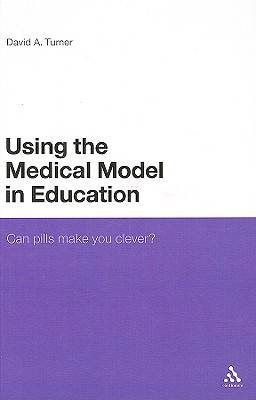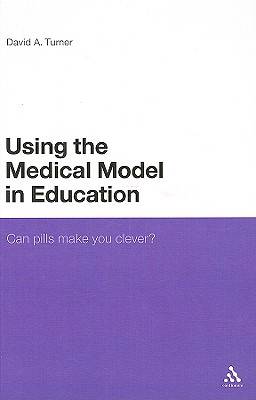
Door een staking bij bpost kan je online bestelling op dit moment iets langer onderweg zijn dan voorzien. Dringend iets nodig? Onze winkels ontvangen jou met open armen!
- Afhalen na 1 uur in een winkel met voorraad
- Gratis thuislevering in België vanaf € 30
- Ruim aanbod met 7 miljoen producten
Door een staking bij bpost kan je online bestelling op dit moment iets langer onderweg zijn dan voorzien. Dringend iets nodig? Onze winkels ontvangen jou met open armen!
- Afhalen na 1 uur in een winkel met voorraad
- Gratis thuislevering in België vanaf € 30
- Ruim aanbod met 7 miljoen producten
Zoeken
€ 339,45
+ 678 punten
Uitvoering
Omschrijving
Medicine, and particularly neuroscience, appears to offer the kind of educational quick fixes that politicians and the public would love to have. Following media reports of drugs that seemingly improve learning and memory, David Turner examines commonly held beliefs about learning, knowledge and intelligence, and critically assesses such claims. Using the Medical Model in Education then moves beyond the immediate, fashionable or any specific substance, to a deeper examination of what society does or should expect in terms of results, from the educational system.
Many of the underlying problems facing science and education have persisted, with slight modifications, over decades and even centuries. By pointing to parallels between current debates and those presented in works by Aldous Huxley, Ludwig Wittgenstein or Noam Chomsky, the book shows that the important question is not whether or not we should administer modafinil in our schools, but whether we should think about education in medical terms at all.
Many of the underlying problems facing science and education have persisted, with slight modifications, over decades and even centuries. By pointing to parallels between current debates and those presented in works by Aldous Huxley, Ludwig Wittgenstein or Noam Chomsky, the book shows that the important question is not whether or not we should administer modafinil in our schools, but whether we should think about education in medical terms at all.
Specificaties
Betrokkenen
- Auteur(s):
- Uitgeverij:
Inhoud
- Aantal bladzijden:
- 190
- Taal:
- Engels
Eigenschappen
- Productcode (EAN):
- 9781847061171
- Verschijningsdatum:
- 6/01/2010
- Uitvoering:
- Hardcover
- Formaat:
- Genaaid
- Afmetingen:
- 157 mm x 234 mm
- Gewicht:
- 476 g

Alleen bij Standaard Boekhandel
+ 678 punten op je klantenkaart van Standaard Boekhandel
Beoordelingen
We publiceren alleen reviews die voldoen aan de voorwaarden voor reviews. Bekijk onze voorwaarden voor reviews.











